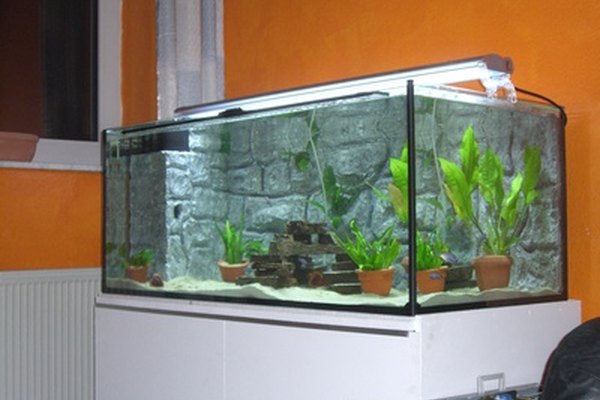Will Sulfuric Acid Dissolve an RTV Silicone Seal?
by Les BelzerUpdated September 15, 2017
RTV is an initialization for Room Temperature Vulcanizing rubber or silicone, an extremely useful product. You can use it to form almost instant gasket-like seals in your car or other machinery. There are also many other uses for the product, depending on the specific formula. The movie industry, for instance, uses it to create wobbly lifelike figures in motion pictures.
What Is Vulcanization
Vulcanization was first discovered by Charles Goodyear, of Goodyear tire fame, in 1839. He found that if you heat liquid rubber and add sulfur that the resulting compound is much more durable than the rubber alone. He named the process after Vulcan, the Greek god of fire. Since then the process has been improved not only for rubber but also for silicone. In 2011 the process is used not only to make long-lasting tires, but also to improve the characteristics of silicone sealants.
How Silicone Is Made

Silicone is the basis for a large number of elastomers, polymers and synthetic rubbers. In general, all silicone is made by adding oxygen to silicon. This forms chains with alternating molecules of silicon and oxygen. Then other additives, such as sulfur, provide the silicone with specific properties necessary for each application. It was first discovered in the early 1900s and used in World War II as a sealant for airplane coolant.
RTV Silicone Sealant
RTV or room temperature vulcanized silicone is very useful as a sealant. Its high resistance to oil, transmission fluid and coolants make it the perfect material for a sealant in your car or even in your aquarium. These sealants come in two varieties: those that have a single tube application and those that have to be mixed like epoxy glues just before use. The advantage of the messier mixed system is that it cures faster so your seal can be ready in a matter of minutes.
RTV and Acid
Sulfuric acid is a clear, viscous liquid with extremely corrosive properties. You must be very careful to take proper precautions when using this chemical. Most RTV silicone sealants claim to have a high resistance to corrosion even against high-concentration acids. So the majority of RTV silicone sealants will resist contact with sulfuric acid. Remember, however, that there are many different formulas available, so you might want to try a small amount of sulfuric acid on the sealant to see how it reacts. Silicon, the basis of silicone, is also the basis for glass, in which sulfuric acid is stored.
References
Writer Bio
Les Belzer has been a professor, entrepreneur, farm owner and writer since 1968. He has written in-house articles on education, mathematics and Spanish literature. Since 1999 he has written travel articles for Escapeartist and "International Living." Belzer holds a Bachelor of Arts in Spanish literature from Idaho State University and a Master of Science in math from the Universidad Mayor de San Simon.









